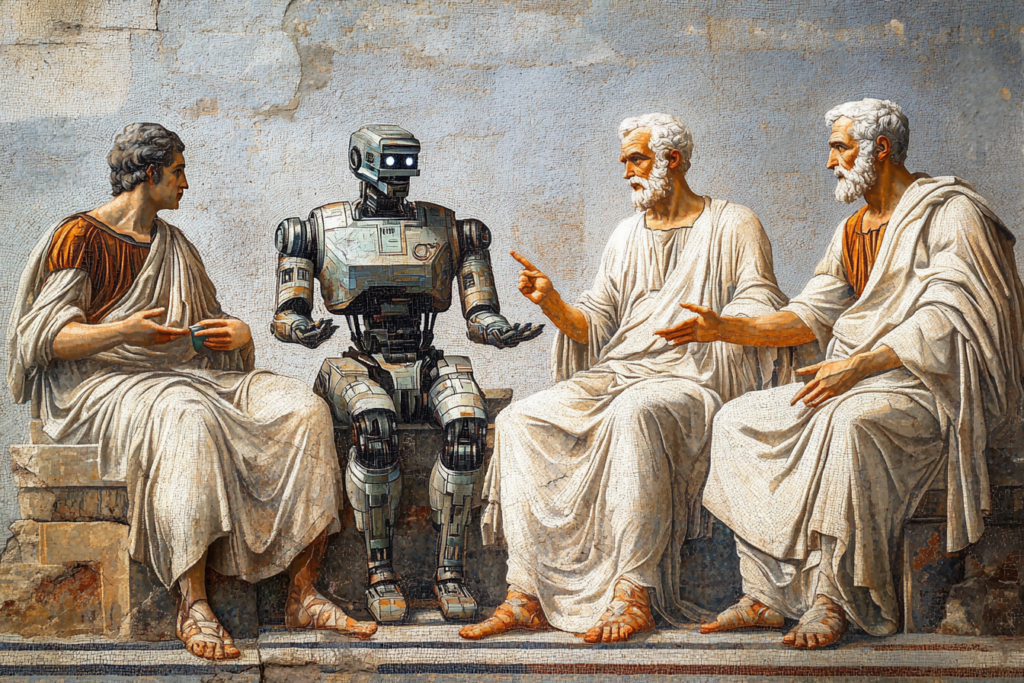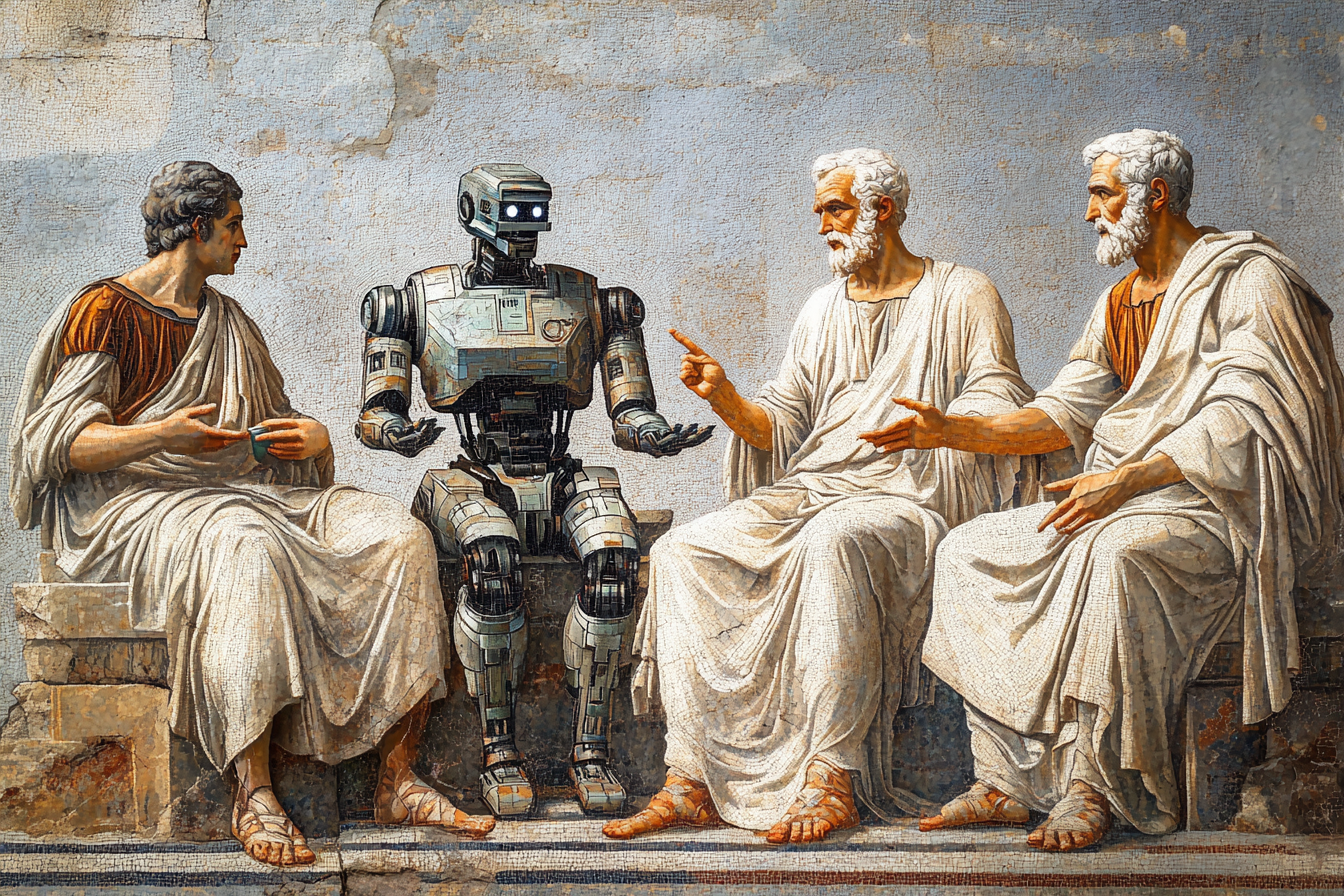
In the vast, ever-expanding tapestry of the digital realm, where a myriad of platforms vie for the ephemeral attention of the global populace, the enduring ubiquity of Google, as the world’s most visited website, presents a profound existential and philosophical conundrum. Despite the pervasive tentacles of social media behemoths like Facebook and Instagram, which meticulously curate and amplify individualistic narratives, Google maintains an unparalleled gravitational pull, beckoning billions into its informational embrace.
What has Google Become?
Google’s indispensable integration into the quotidian fabric of American life, and the anticipated enhancement of its user relationship through the burgeoning synergy with artificial intelligence, ultimately paves the way for amplified advertising paradigms – solidifying its position as the quintessential arbiter of online information dissemination for products, services, and personal resources.
The contemporary digital landscape is characterized by a seemingly paradoxical dichotomy: the ascendance of personalized, interconnected social networks against the steadfast dominance of a search engine. Social media platforms thrive on the production and consumption of user-generated content, fostering echo chambers of shared experience and identity construction. Their algorithms, meticulously crafted to maximize engagement, often prioritize sensationalism and ephemeral trends, cultivating a constant influx of novel stimuli. Yet, adjacent to this dopamine-inducing cauldron of digital camaraderie and performative selfhood, Google persists as the foundational stratum for internet navigation.
Its enduring reign is not merely a testament to superior algorithmic efficiency – it reflects a fundamental human need: the innate drive for knowledge acquisition and problem-solving.
While social media offers a curated glimpse into others’ lives, Google offers access to a first generation of collective consciousness, a vast repository of facts, opinions, and instructions. This distinction is crucial; social media facilitates interaction within a defined network, whereas Google empowers exploration of an unbounded informational database which is unequivocally unrivaled. The philosophical underpinnings of this preference lie in the hierarchical ordering of cognitive needs, where the quest for understanding often precedes, or at least underpins, the desire for social validation.
Google has transcended its initial function as a mere indexing tool to become a de facto extension of human memory. Historically, memory was conceived as an intrinsically biological and psychological construct, a neural archive of personal experiences, learned facts, and cognitive schemas. However, as both digital immigrants and digital natives have come to embrace, this locus has been dramatically externalized.

The act of “Googling” has become synonymous with the act of recalling, not through internal mnemonic processes, but through immediate, on-demand retrieval from an externalized, infinitely expandable database. This phenomenon can be understood through the lens of extended cognition, a philosophical theory positing that cognitive processes are not solely confined within the neural firings of the human brain, but can encompass external tools and environments.
Google, in this framework, functions as a highly sophisticated cognitive prosthesis, seamlessly augmenting our biological memory banks.
The implications are profound: why commit to rote memorization when information is perennially accessible within milliseconds? This shift fosters a different kind of cognitive agility, one that prioritizes information access and synthesis over mere retention. The individual no longer needs to store the answer but rather the means to find the answer. This radical transformation redefines intelligence, moving away from the capacity for internal recall towards the mastery of navigating and extracting meaning from external informational landscapes.
The pervasive integration of Google into the very sinews of American existence underscores its status as an indispensable piece of technology. From the prosaic — “What time does the store close?” — to the profound — “Symptoms of [medical condition]” — Google serves as the first, and often the only, port of call for queries across every conceivable domain. Its algorithms, continuously refined by trillions of searches, anticipate needs, disambiguate intentions, and deliver highly relevant results with astonishing precision. This immediate gratification of informational desires has fundamentally rewired cognitive expectations.
Patience, once a virtue in the arduous pursuit of knowledge through libraries, academia, and encyclopedias, has been supplanted by an expectation of instantaneous answers. This omnipresence is not merely a convenience but a structural necessity in a society increasingly reliant on rapid information flow. The lack of internet access, or more specifically, access to Google, is no longer merely an inconvenience but a significant impediment to navigating modern life, impacting everything from civic participation to economic opportunities. The “digital divide” thus becomes not merely about access to hardware but access to the digital oracle itself.
Philosophically, this raises questions about epistemological dependence: how much of our perceived knowledge is truly internalized, and how much is merely an artifact of our capacity to access Google?
The anticipated integration of artificial intelligence into Google’s core search functionality promises to transcend the current user-search engine relationship, elevating it from a transactional query-response model to a more symbiotic, almost dialogic, engagement.
Current search operates largely on keyword matching and relevance ranking; future AI-powered search, epitomized by advancements in natural language processing and generative models, will move towards nuanced understanding, contextual awareness, and proactive assistance. Imagine a Google that not only answers questions but understands the underlying intent, anticipates follow-up queries, synthesizes information from disparate sources into coherent narratives, and even offers personalized insights or recommendations based on a deeper comprehension of the user’s ongoing informational journey. This shift aligns with a philosophical trajectory where technology moves beyond mere utility to become a more intimate partner in human cognition.
The relationship will evolve from user-tool to user-assistant, or perhaps even user-cognate, blurring the lines between human and artificial intelligence.

This enhanced interaction will foster a sense of collaboration, a feeling that Google is not merely a database but an intelligent entity capable of anticipating needs and facilitating deeper understanding. The existential implication here is a further externalization of cognitive load, where complex synthesis and analysis are increasingly offloaded to AI, freeing human intellect for higher-order creativity and critical thinking—or, conversely, potentially fostering intellectual complacency.
This escalating reliance on Google, driven by its unparalleled informational utility and the promise of AI-enhanced interaction, naturally gives way to a proliferation of advertising opportunities, cementing Google’s economic dominance. As Google remains the primary conduit through which Americans access the internet and seek information—be it for deciphering product specifications, evaluating service providers, understanding complex health conditions, or navigating personal finance—it becomes an invaluable nexus for advertisers. Every search query represents an explicit declaration of intent, a granular insight into consumer needs and desires. This “intent-driven” advertising, delivered through meticulously targeted search ads, display ads across its vast network, and increasingly through contextual placements within AI-generated responses, is inherently more potent than broad-spectrum campaigns.

When a user queries “best ergonomic office chair,” they are not merely browsing; they are signaling a direct commercial interest, offering advertisers an unparalleled opportunity to intercede at the precise moment of decision-making.
The philosophical implication is a profound intertwining of the pursuit of knowledge with the mechanisms of commerce.
The aspiration for information becomes inextricably linked to the exposure to commercial propositions. Google, in this context, is not just an information provider but a finely tuned market facilitator, a digital bazaar where every informational quest can be subtly, yet powerfully, monetized. The ethical considerations surrounding this seamless integration of information and commerce, particularly concerning sensitive topics like health and finance, become paramount, raising questions about algorithmic bias, data privacy, and the potential for manipulative advertising practices within an increasingly indispensable digital ecosystem.
Google’s enduring reign as the most visited website, amidst the efflorescence of social media, is not merely incidental but symptomatic of its profound existential role in the digital age. It has fundamentally reshaped our relationship with information, morphing into an indispensable extension of human memory and cognition. Its omnipresence in American daily life is a testament to its unparalleled efficiency in satisfying the innate human hunger for knowledge. The impending integration of sophisticated AI will only deepen this symbiotic relationship, transforming search from a utilitarian function into a more intuitive, intelligent partnership. This deepening reliance, while offering unprecedented access to information, simultaneously fortifies Google’s position as an advertising powerhouse, turning every informational query into a potential commercial opportunity. As we navigate this increasingly Google-centric world, it becomes imperative to critically examine the philosophical implications of this digital oracle—its power to shape our knowledge, influence our decisions, and ultimately, define the very contours of our collective consciousness. The future of information, and indeed, the future of human cognition, is increasingly intertwined with the evolving capabilities and pervasive influence of Google.








